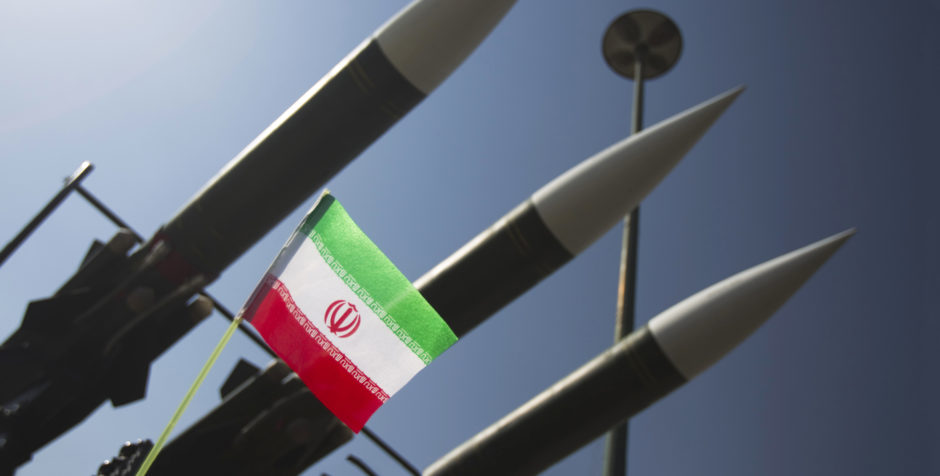Why Iran Is a Threat to the World
In the 21st Century there are not many nations who represent an open threat to the security and interests of virtually every nation on earth. Iran is such a nation. Most countries, even our known enemies and those who are a threat on some level, operate under the guise of being benign and peace-loving. Iran is in a category with only one other country that flaunts its dark side and routinely threatens other nations: North Korea. Iran continues to call for the destruction of the nation of Israel, is an ever-present threat to the Arab Gulf States that it sees as enemies, and would destroy the United States if it could.
Iran is the leading state-sponsor of terrorism. Most of the time it sows terror and unrest through its proxies, such as Hezbollah, Hamas, and the Houthi Rebels in Yemen. Trying desperately to couch itself as a global power that must be recognized as such, it uses saber-rattling, threats and bravado much like the stereotypical bully in the school yard.
However, Iran is dangerous. Part of what makes it so volatile is its religious Supreme Leader and the Islamic Revolutionary Guard Corps (IRGC). While Iran has an elected president and parliament, in many ways they are figureheads. The Ayatollah Ali Khamenei Is, as his title implies, the supreme authority. The government operates at his pleasure and he has complete power in the affairs of the nation, whenever he chooses. The IRGC is his personal army; they do not answer to the elected government, rather only to Khamenei. Iran’s regular armed forces are totally separate.
Within the IRGC are the Basij militia and the Quds Force (IRGC-QF). The Basij, literally “mobilization,” is a paramilitary organization responsible for channeling popular support for the Iranian regime. The Basij is famous for its recruitment of volunteers, many of them teenagers, for suicidal mass attacks during the Iran-Iraq war. The Basij has two missions today: to provide civil-military training to protect the regime against invasion, and to suppress domestic anti-regime activity through street violence and intimidation. For example, after the contested 2009 Iranian presidential elections the Basij brutally quashed protests and attacked student demonstrators.
The IRGC’s Quds Force specializes in foreign operations, providing training, funding and weapons to extremist groups, including the Houthis, Hezbollah, and Hamas. The IRGC, the parent organization of the Quds, has its own ground troops, air assets, navy, and special forces. They are a rogue military organization. Under the direction of General Hossein Salami, they are generally given free reign by the Ayatollah to carry out attacks. They are not required to inform the elected leadership of any of their operations.
Under such an organizational flow chart, Iran poses a lethal and unpredictable threat to the region, especially the shipping lanes, as evidenced by the recent attacks on oil tankers. The United States now claims to have undeniable evidence that the two vessels carrying oil to Asia were sabotaged by IRGC forces, using limpet mines, a magnetic explosive device that can be attached to the hulls of ships. The U.S. also produced video evidence of an IRGC gun boat removing an unexploded mine from one of the ships, after an explosion that crippled the Kokuka Courageous, a Japanese-operated vessel.
The ships were carrying oil from Saudi Arabia and the United Arab Emirates, nations which Iran views as adversaries. IRGC commanders had recently threatened to shut down the Straits of Hormuz if Iran is not allowed to export its oil. Under U.S. sanctions following America’s withdrawal from the Iran nuclear deal (JCPOA), Iran’s oil exports have dropped to 500,000 barrels a day from approximately three million barrels a day before sanctions. The Iranian economy is suffering on multiple levels.
The IRGC was also implicated last month is the sabotage of four other oil tankers. The IRGC-backed Houthi Rebels also attacked Saudi oil facilities and fired a missile into a Saudi Arabian airport, injuring 26 civilians.
These recent attacks—all the work of Iran—are an assault on the world economy, on innocent people, and on freedom of navigation. The IRGC gunboats make the international waters off the coast of Iran a dangerous place. Unlike their activities under previous U.S. administrations where U.S. ships were harassed and U.S. Navy sailors held captive, Iran knows that today the U.S. would respond with overwhelming force. Thus, the attempts at sabotaging ships with mines and having their proxies carry out other attacks—all while denying any involvement.
That does not mean that the IRGC navy will not carry out direct attacks. In the past they have used gunboats to swarm vessels. These boats are fast, equipped with anti-ship missiles, machine guns, and torpedoes. The behavior of the IRGC sailors is often reckless, impromptu and they operate independently from the official Iranian government. They are, however, terrorists on the payroll of that government.
How should the United States respond? There is talk of the U.S. Navy providing escorts for ships in the area. That must happen. The U.S. must also organize the international community to stand against the aggression of Iran, as these are attacks on the interests of all nations. If Iran continues to launch such attacks, under U.N. authorization, Iranian coastal waterways and airspace should be closed down to all Iranian craft. It goes without saying, that any attack on U.S. forces or facilities must be met with direct and overwhelming military force, using all the capabilities and assets of the most powerful military on the planet.
What must not happen is for the world to acquiesce to Iranian threats and extortion. Iran continues to warn of dire consequences if Europe does not come to its rescue, help them evade U.S. sanctions, and be given financial aid.
